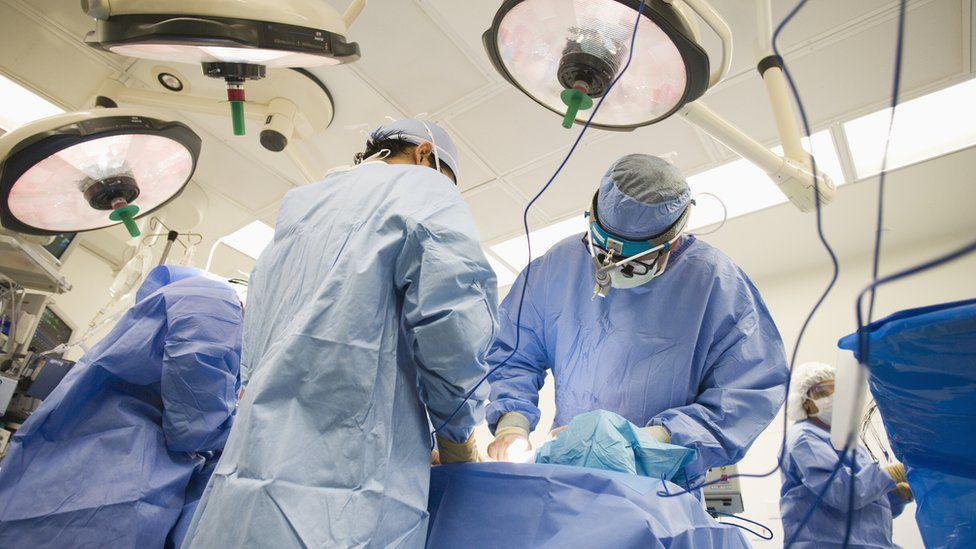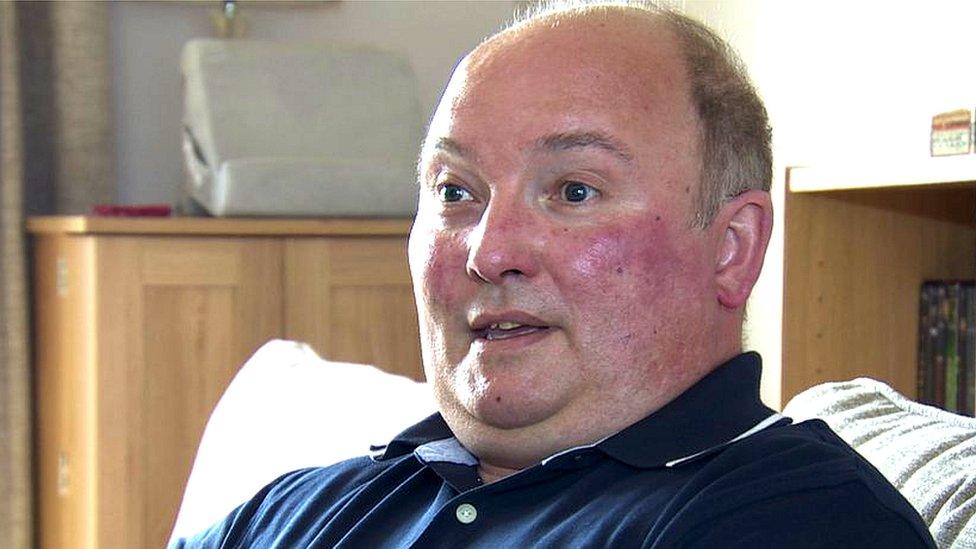Waiting lists: 'Urgent funding needed' to clear Northern Ireland backlog
- Published

Urgent funding is required to clear waiting list backlogs and drive Northern Ireland's long-term healthcare transformation, a watchdog has said.
It comes in a report which outlined the health service's "critical situation" after almost a decade of worsening waiting lists for elective care.
The NI Audit Office looked at waiting list data from 2014 to 2023.
It found the number of patients waiting for elective care has risen by 452,000 during that nine-year period.
In December 2022, the number of patients on waiting lists equated to more than a quarter of the population of Northern Ireland.
The Audit Office also said: "Available information suggests waiting list performance levels are significantly worse in Northern Ireland compared with the other UK regions."
What is elective care?
Elective care refers to medical tests or treatment that can be planned well in advance, in contrast to unscheduled care such as emergency surgery.
Elective procedures are usually arranged for patients suffering from long-term health conditions, which although may not be immediately life-threatening, often affect their quality of life.
The head of the Audit Office, Northern Ireland's comptroller and auditor general, Dorinnia Carville, said "the deterioration in elective waiting time performance is stark".
"Lengthy waits place patients at risk of developing debilitating and complex conditions, potentially requiring more expensive treatment," Ms Carville added.
"Patients' mental health and quality of life can also suffer to a point where many risk developing serious conditions."
Issues before and after Covid-19
The report warned that the extra costs incurred through treatment delays would put the health and social care sector under even greater pressure, "potentially bringing it close to breaking point".
The 87-page report, entitled Tackling Waiting Lists, highlighted some concerning statistics:
A total of 696,000 patients were waiting on either outpatient, inpatient or diagnostic elective care by March 2023.
That is a rise of 185% compared to the 244,000 people who were on the list in March 2014.
In March 2023, about 197,000 patients were waiting over a year for a first outpatient appointment.
Northern Ireland's health service has not met any of its elective care waiting time targets since 2014.
In December 2022, 500,678 people were on waiting lists - a figure equivalent to 26% of the Northern Ireland population, although some patients may be on more than one list.
The report compared this figure to 12% of the population in England and 24% in Wales.
The reasons for the poor performance include rising demand from an ageing population, at a time when public funding has not risen to match that demand.
The report also pointed to staff shortages, a lack of progress in modernising services and the impact of the Covid-19 pandemic, which "significantly contributed to lengthy waiting times".
High Covid-19 infection rates between April 2020 and early 2021 meant most routine elective care had to be postponed while staff were redirected to help out on hospital wards and emergency departments.
High numbers of staff testing positive and new infection control measures also affected the number of elective operations and procedures that could be carried out.
But the report also noted that elective delays were a longstanding problem that preceded Covid.
Among its recommendations, the report said it was "now imperative that the necessary funding is allocated as soon as feasible to both clear patient backlogs and drive longer-term HSC (health and social care) transformation".
The Northern Ireland director of the Royal College of Surgeons, Niall McGonigle, welcomed the report and said his organisation supported its key recommendations.
"This report is stark, stating that unless shorter waiting lists are achieved, the HSC could be at breaking point," he said.
"Waiting lists in Northern Ireland have been rising dramatically year on year, and until we see a fully-funded plan in place, more patients will continue to suffer and wait longer times for care to start."
He added that Northern Ireland's health service was "operating in dire straits" due to high sickness rates coupled with retirement or retention issues.
Related topics
- Published31 August 2023

- Published7 July 2023
